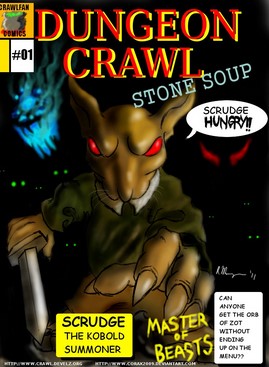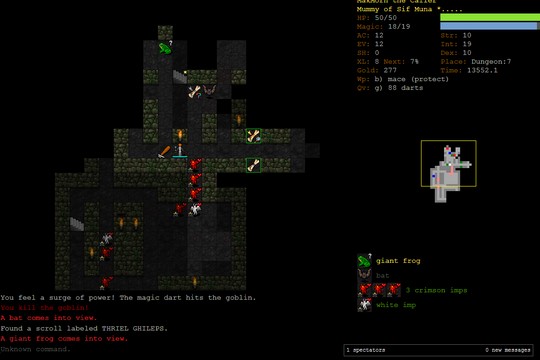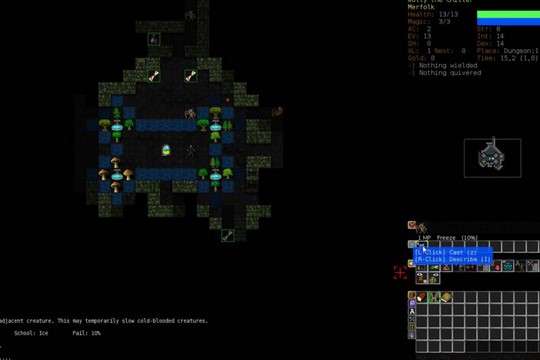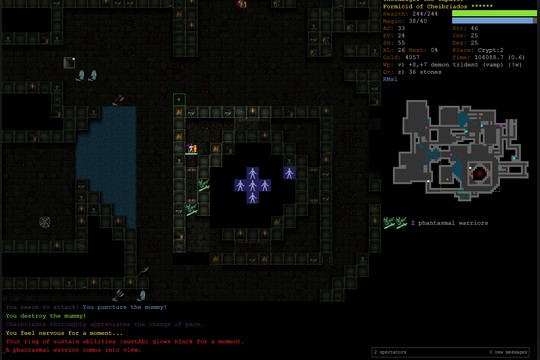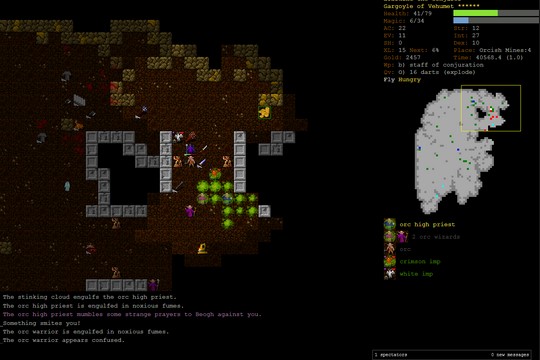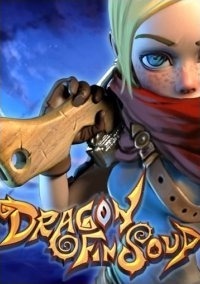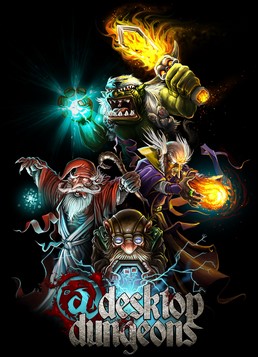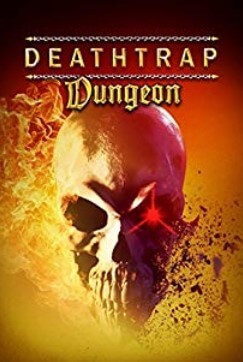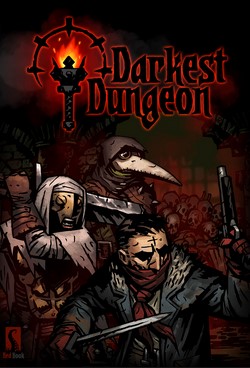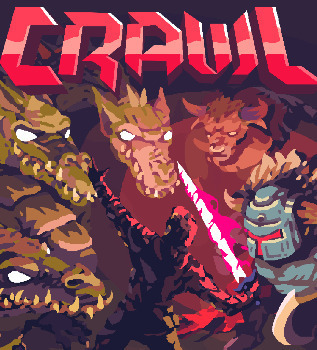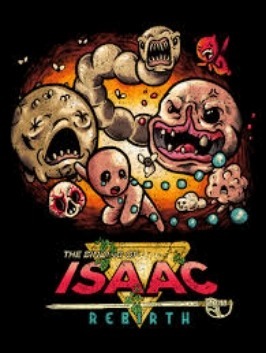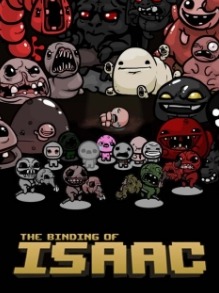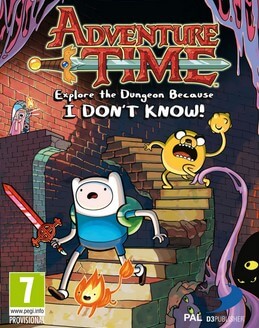Dungeon Crawl Stone Soup is a free and open source roguelike computer game, which is the actively community-developed successor of the 1997 roguelike game Linley's Dungeon Crawl, originally programmed by Linley Henzell.
Dungeon Crawl Stone Soup polled first in a 2008 poll of over 500 roguelike players, and later polled second in 2009 (behind DoomRL) and 2010 (behind ToME 4), and third in 2011 (behind ToME 4 and Dungeons of Dredmor).
Dungeon Crawl Stone Soup is released under the GNU GPL version 2 or later.
The latest release is version 0.23.2, released on March 30, 2019.
Gameplay
Dungeon Crawl Stone Soup is a roguelike game where the player creates a character and guides it through a dungeon, mostly consisting of persistent levels, full of monsters and items, with the goal of retrieving the "Orb of Zot" (a MacGuffin) located there, and escaping alive. To enter the Realm of Zot where the Orb is located, the player must first obtain at least three "runes of Zot" of the 15 available; these are located at the ends of diverse dungeon branches such as the Spider Nest, Tomb, and Slime Pits.
The game has an explicit design philosophy intended to provide interesting strategic and tactical choices within a balanced game; to offer replayability based on random dungeon generation; to make the game accessible and enjoyable without deep knowledge of its internal mechanics; and to present a friendly user interface that can optionally automate several tasks like exploration and searching for previously seen items. Conversely, the developer team seeks to avoid providing incentives for repeating boring actions without consideration, or providing illusory gameplay choices where one alternative is always superior.
Most levels are randomly generated to maximize variety, while the levels containing the objective items are randomly chosen between several manually-designed layouts, which usually contain random elements, and which are authored in a Crawl-specific language incorporating Lua scripting. Randomly generated levels may contain randomly chosen manually designed fragments called "vaults", as well as portals to special manually designed mini-levels called "portal vaults" such as volcanoes and wizard's laboratories.
Characters are initially defined by their species and their background. Character advancement is based on experience points gained by defeating monsters, which increase both an experience level and a set of skills including melee weapons, ranged weapons and magic. The player determines which skills to increase.
The species choice determines the aptitudes of the character for each of the skills, which represent how much experience is needed to raise the skill to higher levels and adds species-specific abilities. In the 0.20 version, 27 species are available, from those with little deviation from the common mechanics such as humans and hill orcs, to species such as mummies and octopodes which have unusual gameplay mechanics.
The background choice determines the starting skills and equipment, with about 24 choices such as fighters, necromancers, and berserkers; unlike species choice, background choice only affects the start of the game - the player is not prevented from pursuing any skills and using any equipment.
Some backgrounds also start with a fictional religion, and in general it is possible to acquire or change the character's religion once the appropriate altar is found; the choice of the god to worship significantly impacts gameplay, because each god rewards and punishes a different set of actions, and offers a specific set of abilities and gifts inspired by original lore. Some gods offer enhancements to existing play styles, such as Okawaru gifting weapons and boosting combat or Sif Muna gifting spell books and extra MP regeneration, while others force unusual demands on the players in exchange for significant bonuses, like Cheibriados who wants devotees to move slowly and Ashenzari limiting the ability to swap equipment in return for divinations and skill boosts, and Xom, who is the DCSS equivalent of the trickster god archetype. Additionally, abandoning gods usually causes them to become angry at the player, which can cause them to summon powerful monsters or inflict nasty effects like slowing, reduction of max HP, or large amounts of damage on the player.
